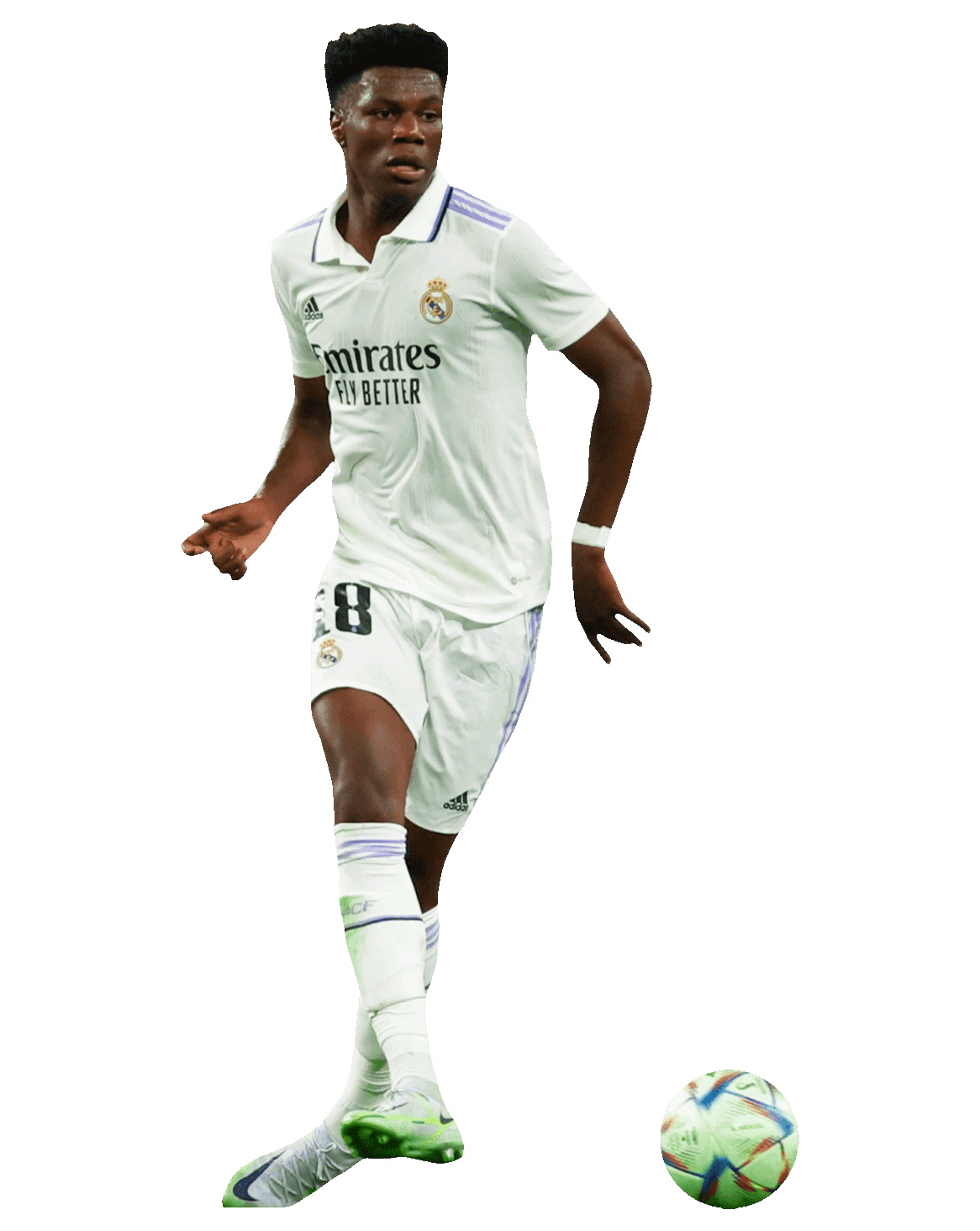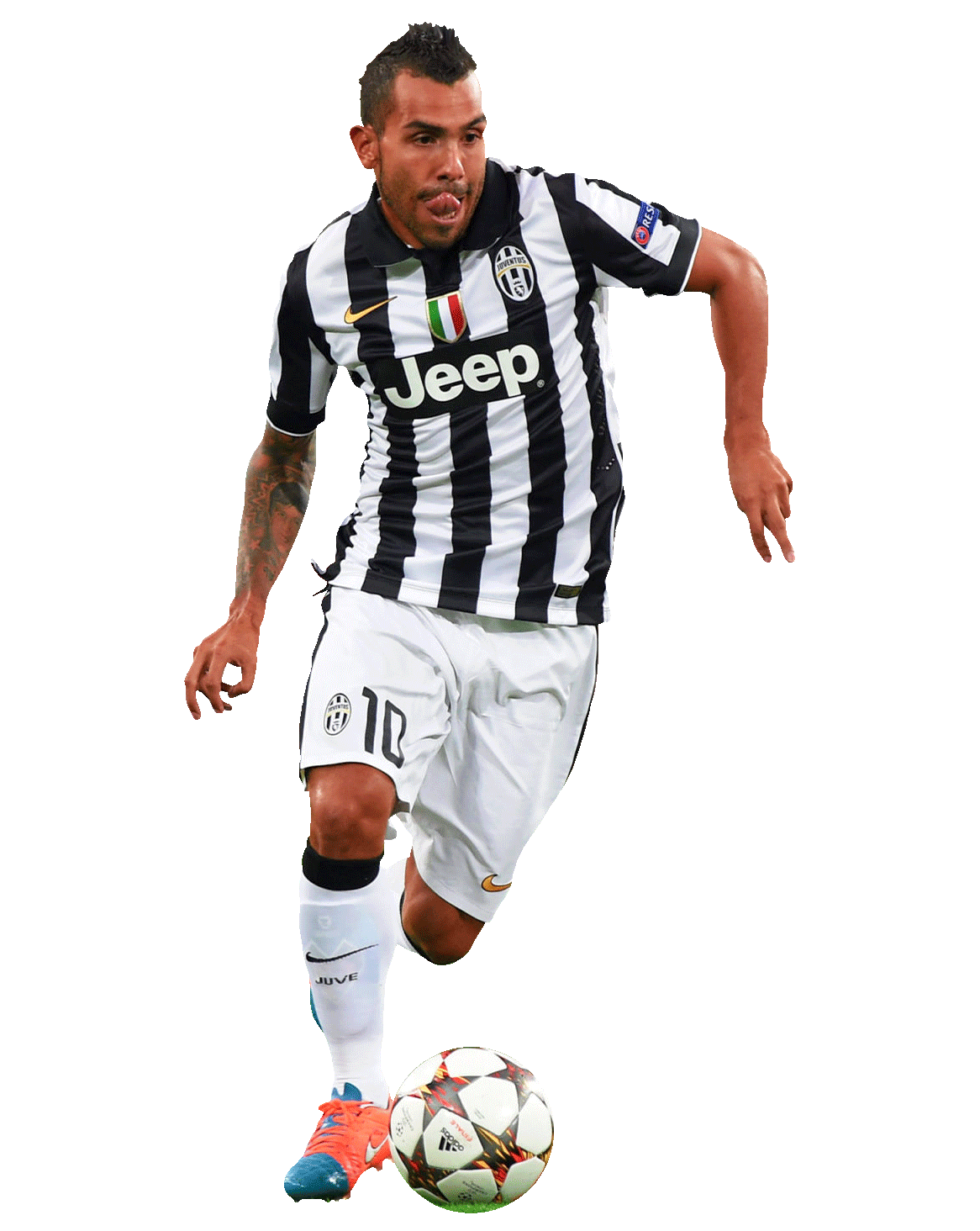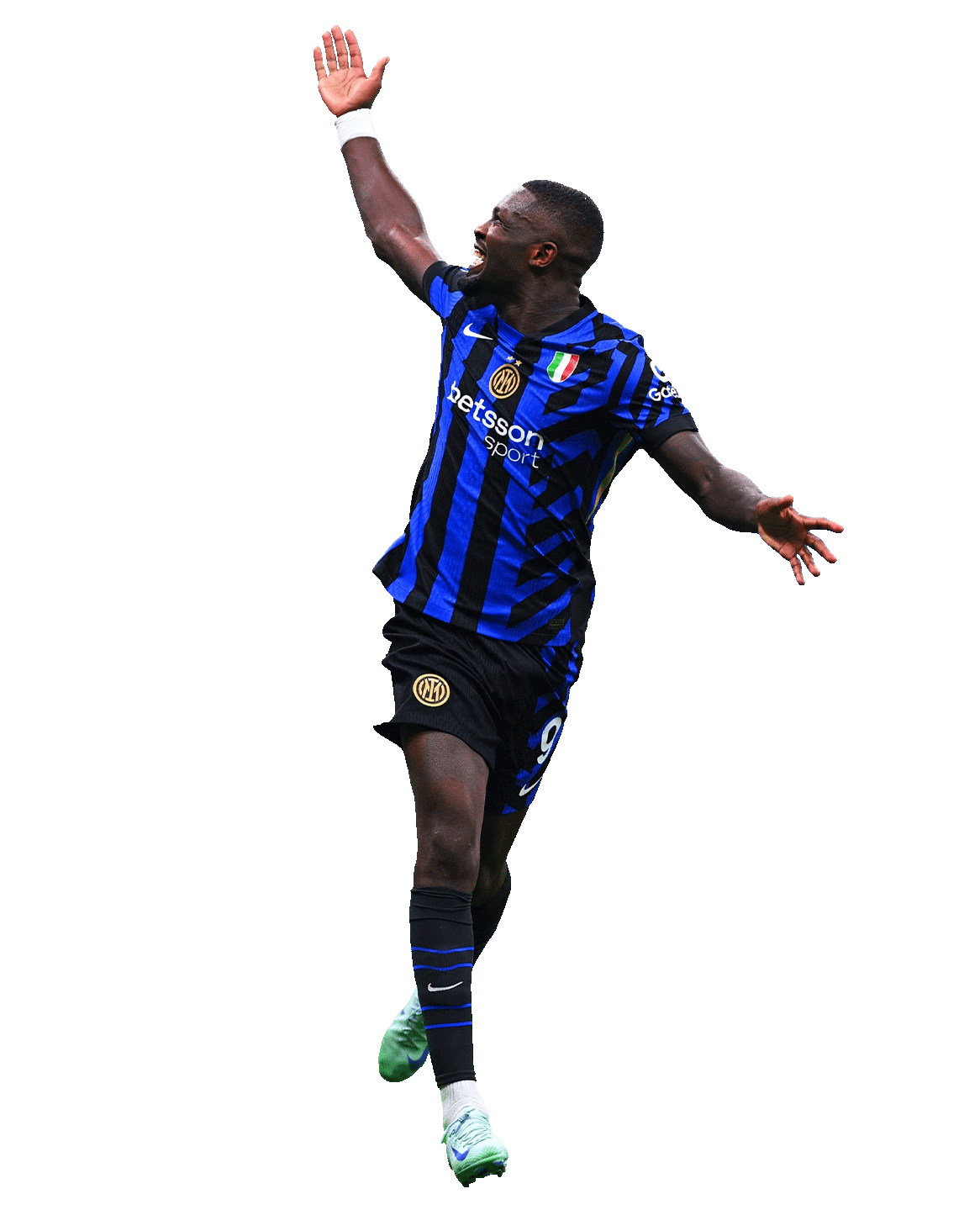


Rio Gavin Ferdinand
~Ferdz
Nov 07' 1978

England
The Exhilarating Story...
Born on November 7, 1978, in Camberwell, London, Rio Gavin Ferdinand's journey from the modest Friary council estate in Peckham to the pinnacle of English football is a testament to resilience, determination, and the power of mentorship. Rio was born to Julian Ferdinand, of Saint Lucian descent, and Janice Lavender, of Irish descent. Growing up in a large family, he had several siblings, including his brother Anton Ferdinand, who also pursued a career in professional football. The family's environment in Peckham was challenging, but it instilled in Rio a relentless drive to succeed. From a young age, Rio exhibited exceptional athletic talent. He joined West Ham United's youth system, where he faced the challenges of breaking into professional football. His dedication paid off when he made his senior debut in 1996. However, the path was not without obstacles. Early in his career, Rio encountered the temptations of nightlife, which began to affect his performance on the field. A pivotal moment came when Sir Alex Ferguson, then manager of Manchester United, delivered a succinct yet impactful message: "You want to stay here? You better watch what you do." This wake-up call prompted Rio to reassess his lifestyle. Observing the professionalism of teammates like Gary Neville and Paul Scholes, he adopted a more disciplined approach, leading to significant improvements in his fitness and performance. Throughout his journey, Rio benefited from a robust support system. His family's encouragement, coupled with mentorship from coaches and senior players, played a crucial role in his development. Sir Alex Ferguson's guidance was particularly instrumental, providing the structure and discipline necessary for Rio to thrive at the highest levels of football. Rio's career is decorated with numerous accolades. During his tenure at Manchester United, he secured six Premier League titles, three League Cups, and a UEFA Champions League title, among others. His defensive prowess earned him a place in the Premier League Hall of Fame in 2023, solidifying his status as one of England's football legends. Off the pitch, Rio faced personal tragedies, including the loss of his wife, Rebecca Ellison, to breast cancer in 2015. Demonstrating remarkable resilience, he channeled his grief into advocacy, raising awareness about bereavement and mental health. His documentary, "Rio Ferdinand: Being Mum and Dad," received critical acclaim, earning a BAFTA award in 2018. In recent years, Rio has transitioned into a successful career in broadcasting, providing insightful punditry for major sports networks. His commitment to social issues remains steadfast, as he continues to engage in initiatives promoting equality and mental well-being. Rio Ferdinand's life story is a powerful narrative of overcoming adversity through determination, discipline, and the support of mentors and loved ones. His journey from the streets of Peckham to international football stardom serves as an enduring inspiration, illustrating that with resilience and the right guidance, one can triumph over life's challenges and leave a lasting legacy.
“
There's always a hangover of the bad game. It is like a wounded animal in a way, as you want to get out there as quick as possible and rectify it.

Career
Last updated: Jan 16' 2025
West Ham United
- Career: 1995-2000
- Total Appearances: 127
- Total Goals: 2

AFC Bournemouth
- Career: 1996-1997 (Loan)
- Total Appearances: 10

Leeds United
- Career: 2000-2002
- Total Appearances: 54
- Total Goals: 2

Manchester United
- Career: 2002-2014
- Total Appearances: 312
- Total Goals: 7

Queens Park Rangers
- Career: 2014-2015
- Total Appearances: 11

England Football Team
- Career: 1997-2011
- Total Appearances: 81
- Total Goals: 3
Achievements
West Ham United
- 1x UEFA Intertoto Cup
Manchester United
- 6x Premier League
- 2x Football League Cup
- 4x FA Community Shield
- 1x UEFA Champions League
- 1x FIFA Club World Cup
Individual
- 1x West Ham United Hammer of the Year
- 6x PFA Premier League Team of the Year
- 1x Premier League Player of the Month
- 1x ESM Team of the Year
- 1x FIFPro World XI
- 1x London Youth Games Hall of Fame
- 1x Premier League Fantasy Teams of the 20 Seasons
- 1x English Football Hall of Fame
- 1x Premier League Hall of Fame
Honour
- 1x BAFTA Award for Best Single Documentary
- 1x Honorary Doctor of Letters from London South Bank University
- 1x Officer of the Order of the British Empire (OBE)

Celebrating
Tchoua


Football
Aug 25' 2025
Celebrating Support & Resilience Aurélien Tchouaméni.
When Aurélien Djani Tchouaméni was born on 27 January 2000 in Rouen, France, few could foresee the tremendous impact he would later have in world football. Though born in Normandy, he grew up in Bordeaux after his parents moved there for work. His father and mother, both originally from Cameroon, gained French nationality later that year. Even as a young child, Aurélien’s vitality and dedication were evident as he began playing football at age five with a local club and, by eleven, had joined the famed Bordeaux academy. Aurélien’s upbringing was defined by two guiding figures. His father and mother - his father named Fernand, his mother Josette - instilled in him values of attention and perseverance. His father worked in pharmaceuticals, his mother was an educational counselor, and they encouraged Aurélien to pursue excellence, whether in football or in life. The path was not easy. Navigating life between cultures and repeatedly adapting to new environments taught Aurélien early on that resilience matters. In Bordeaux’s youth system, he evolved from attacker to midfielder, learning to see the game differently and develop mental strength alongside skill. In November 2017, at just 17, Aurélien signed his first professional contract with Bordeaux. He made his debut in a UEFA Europa League match the next summer, and scored his first senior goal shortly after. But life as a young footballer was challenging. He had to prove himself professionally, pushing through doubts and competition for playing time. A turning point came in January 2020, when Monaco signed him. Despite the pressure of a high-level club move, Tchouaméni shone. He earned Ligue 1 Young Player of the Year in the 2020–21 season and was named in the league All‑Star team. This success reflected his technical growth, tactical intelligence, and a work ethic rooted in the values that his parents instilled in him. In 2022, Real Madrid acquired him for around €80 million. At such a storied club, expectations were sky‑high. Aurélien faced new struggles. He was sometimes deployed in unfamiliar defensive roles, experienced doubtful performances, and even endured boos from the home crowd. Yet, these obstacles became opportunities. They cultivated his mental strength and adaptability. Resilience proved transformative. After a low‑point marked by harsh criticism and positional uncertainty, Aurélien reorganized himself. With the support of a mental coach and strong teammates and coaches, he rebuilt confidence. His return to form was clear: he became one of the most used players by his coach, reinvented himself as a hybrid defensive midfielder/center‑back, and regained the trust of Real Madrid’s fans. Under new coach Xabi Alonso, he has become a tactical lynchpin. Alonso values his adaptability, combining midfield and defensive duties with ease. Training sessions with video analysis and his own discipline - he even plays the piano for concentration training - have helped him excel in this hybrid role. He is now seen as a foundational pillar for Madrid’s ambitions in the 2025‑26 season. Most recently, Aurélien spoke of the team’s mindset: Real must perform at the highest level to win trophies, and he hopes they will lift many this season. His words reflect a maturity forged by struggle and growth. What lessons can young players take from Aurélien’s journey? That success is rarely linear. It is born from talent, yes, but also from resilience, the right support, adaptability, and mental training. That is precisely where 8lete can make a difference. By combining technical training with psychological coaching, flexible positional development, and personalized video feedback, 8lete helps young athletes build the same foundation that took Aurélien from Rouen grassroots to Madrid greatness.
READ MORE

Celebrating
El Apache


Football
Aug 23' 2025
Celebrating Focus & Dreams Carlos Tévez.
Carlos Alberto Tévez was born on February 5, 1984, in Ciudadela, Buenos Aires, and grew up in the notoriously tough neighbourhood known as Fuerte Apache. As a young child, he suffered severe burns when boiling water splashed onto his neck and chest. Hospitalised in intensive care for months, the resulting scars became part of his identity and he refused cosmetic treatment later on, saying they were himself then and himself now. Originally named Carlos Alberto Martínez after his mother, he was born to young parents - Juan Alberto Cabral and Fabiana “Trina” Martínez - but was raised by his maternal aunt Adriana Noemí Martínez and her husband Segundo Raimundo Tévez. They gave him the surname he’s known by today. Fuerte Apache presented daily challenges - poverty, violence, and limited opportunities. Yet even in that adversity, Carlos found an escape in local pitches. He began playing for Estrellas del Uno, Santa Clara, and Villa Real before joining All Boys’ youth system and eventually being scouted by Boca Juniors. At 16, Tévez made his debut for Boca Juniors, kickstarting a stellar rise. With Boca, he won the Copa Libertadores and Intercontinental Cup in 2003. Despite offers for plastic surgery to remove his scars, he declined, embracing the part of life that had forged his resilience. His success continued at Corinthians in Brazil, Manchester United, Manchester City, Juventus, and beyond - bringing Premier League titles, Serie A triumphs, and Champions League glory. On the international stage, he won Olympic gold in 2004 and represented Argentina at multiple World Cups and Copa América tournaments. Behind every ascent were the people who believed in him - adoptive parents who supported him, coaches who nurtured his talent, and teammates who fought alongside him. More importantly, his own determination and refusal to let his scars define him became his greatest allies. After retiring in June 2022, much of his heart returned to Argentina. He took managerial roles at Rosario Central and Independiente before stepping into a key role at Talleres de Córdoba in July 2025, tasked with lifting a struggling team and inspiring a new generation. In June 2025, Tévez stunned at the Soccer Aid charity match, scoring four goals in just ten minutes to lead the World XI to a dramatic comeback at Old Trafford. The performance reignited memories of his brilliance even British boxing champion Tyson Fury praised his timeless impact. Tévez’s journey shows that true champions emerge from hardship, powered by grit, pride, and support. At 8lete, we believe that young athletes no matter their starting point - can reach greatness with the right training, community, and mental resilience. Tévez’s story reminds us how robust support systems and self-belief can turn raw talent into global legacy. Whether you’re a young player in a tough neighbourhood or facing personal challenges, remember Tévez’s example: scars don’t hide your strength - they reveal it. With focus, mentors, and platforms like 8lete, your dreams are closer than they seem. Take that first step - your own legend awaits.
READ MORE

Celebrating
Tikus


Football
Aug 22' 2025
Celebrating Identity & Perseverance Marcus Thuram.
Born on August 6, 1997 in Parma, Italy, Marcus Lilian Thuram‑Ulien arrived with football flowing in his blood. His father, Lilian Thuram, was already a celebrated World Cup winner and European champion with France. Growing up in that household, Marcus experienced both privilege and high expectations. His father, Lilian, originally from Guadeloupe, had moved to France to pursue a football career that would become legendary. Lilian’s dedication, discipline, and later activism against racism showed Marcus that greatness came from more than just athletic talent but also character and awareness. Being “Lilian’s son” was both a blessing and a burden. Marcus often heard expectations that his achievements were easier, even when he was just a boy honing his skills. He absorbed his father’s values - nothing is given, everything is earned and used them as a foundation to build his identity. Marcus joined Sochaux’s academy as a teenager, made his professional debut in 2015, and moved to Guingamp in 2017. He then transferred to Borussia Mönchengladbach in 2019, where he began to establish himself—scoring goals, showing confidence, and stepping out of his father’s shadow. By 2020, Marcus received his first senior call-up to the French national team. He played at Euro 2020 and the 2022 World Cup, where he reaffirmed his potential - not as “Lilian’s son” but as Marcus Thuram, making his own mark and contributing to France’s success. In July 2023, Marcus joined Inter Milan, signing a contract through 2028. He made an immediate impact, helping the club win the Serie A title in his first season and becoming one of the squad’s most influential figures. 2025 proved challenging. Marcus struggled with form, scoring just twice in 15 league games, and suffered from injuries - persistent ankle and muscle issues disrupted his rhythm and limited his availability for key fixtures, including the Nations League quarter‑finals for France. Despite these setbacks, he’s determined to bounce back. Heading into the new season, he aims to reclaim his spot at Inter and silence doubters. Transfer rumors link him to Premier League interest, with clubs like Arsenal and Chelsea reportedly monitoring him. Meanwhile, his father publicly urges him to remain grounded despite his potential. Marcus’s journey is a powerful lesson in perseverance, identity, and self-belief. He shows that a legacy can guide but not define you - hard work, resilience, and learning from setbacks are what forge champions. Whether in youth academies or grassroots setups, young players need more than training - they need guidance, psychological support, and tailored mentorship. This is exactly where 8lete comes in. By providing young athletes with structured development programs, mental coaching, mentorship from professionals, and tools to build their own identities, 8lete can empower the next generation to follow in Marcus’s footsteps - flourish under pressure, rise above challenges, and carve out their own legacy.

